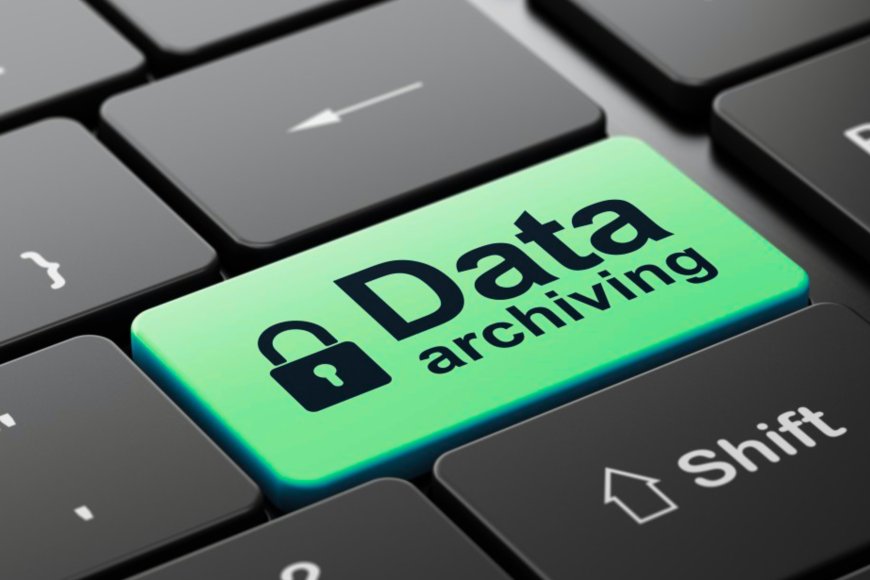Why Every Organization Needs a Data Archiving Strategy to Strengthen Cybersecurity, Ensure Compliance, and Reduce Costs
Data archiving is more than storage, it strengthens cybersecurity, ensures compliance, reduces costs, and supports business continuity. By securing historical data against cyberattacks, organizations protect valuable records, improve efficiency, and guarantee long-term access to critical information.

In today's digital-first world, businesses must deal with a steady stream of data as well as an increasing number of cyberattacks. From financial details to client records, every piece of information is valuable but also a target for hackers. While corporations place a high value on cybersecurity measures such as firewalls and monitoring systems, data archiving is an effective but often overlooked method.
Data archiving involves more than just storage. It is the process of shifting data that is no longer in use to a secure, separate location where it can be safely stored for years. This ensures that vital records are preserved, quickly retrievable, and in compliance with legal standards, while freeing up costly primary storage for day-to-day operations. A solid data archiving plan not only boosts efficiency but also reduces risks when companies confront cyber incidents.
The link between Cyberattacks and Data Archiving
Cyberattacks, including ransomware, phishing, and insider threats, frequently target live systems. If all business data is stored in the same location, a single breach can interrupt operations and result in significant losses. However, with a structured data archiving plan, sensitive and historical data are preserved in secure, tamper-proof locations, making it more difficult for attackers to access or damage.
Even if hackers disable or corrupt active files, archived data can be used to restore activities, assuring company continuity. Data archival services operate as a shield, protecting essential information from active networks while still making it available when needed.
Approaches and best practices for effective Data Archiving
Organizations can pick from a variety of data archiving options based on their needs. Cloud archiving services offer scalability and flexibility, on-premises archiving gives you complete control, and hybrid models combine the advantages of both cloud and local storage. Many businesses also rely on third-party archival services that include advanced capabilities such as encryption, automation, and compliance monitoring. Choosing the correct technique ensures that data is not just stored, but also strategically managed for long-term security, efficiency, and growth.
Choosing an archiving method is merely the first step and adopting best practices is essential. Companies should classify data, establish explicit retention policies, encrypt archives, update or migrate systems on a regular basis, and test retrieval to assure accessibility during emergencies. When combined, the correct approach and best practices result in a robust, cost-effective, and secure archiving strategy.
Why Data Archiving matters for every organization
Data archiving plays a vital role in protecting and managing organizational information.It strengthens cybersecurity by keeping data in secure, encrypted environments with redundancy, reducing risks during cyberattacks. For industries like healthcare, finance, and government, it ensures regulatory compliance with strict retention laws such as GDPR or HIPAA. Archiving also improves cost efficiency by shifting rarely used data to cheaper storage, freeing up primary systems and enhancing performance. In case of breaches or disruptions, it supports business continuity by enabling fast recovery. At the same time, it preserves data integrity and long-term access, protecting valuable records from corruption or accidental loss.
Looking beyond storage: Data Archiving as a shield against Cyber threats
The importance of data archiving goes beyond compliance or storage efficiency. In an era where cyberattacks can halt production, leak sensitive data, or damage reputation, archived data becomes a lifeline. It provides businesses with the ability to recover quickly, continue operations, and protect customer trust.
Investing in data archival services today is like securing an insurance policy for tomorrow. It ensures that, no matter how advanced cybercriminals become, organizations always have a reliable, secure, and accessible copy of their valuable data.







